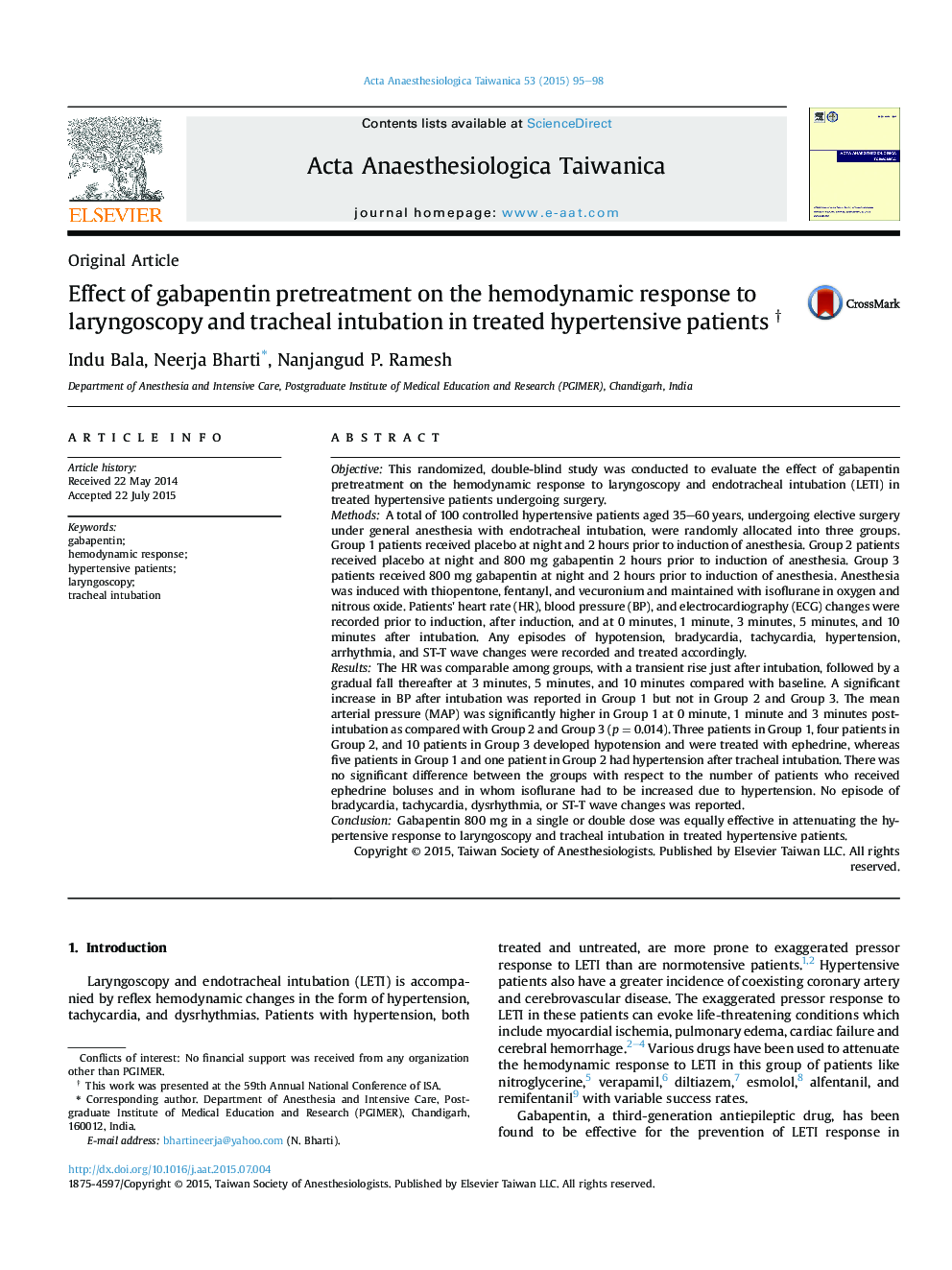| Article ID | Journal | Published Year | Pages | File Type |
|---|---|---|---|---|
| 2741419 | Acta Anaesthesiologica Taiwanica | 2015 | 4 Pages |
ObjectiveThis randomized, double-blind study was conducted to evaluate the effect of gabapentin pretreatment on the hemodynamic response to laryngoscopy and endotracheal intubation (LETI) in treated hypertensive patients undergoing surgery.MethodsA total of 100 controlled hypertensive patients aged 35–60 years, undergoing elective surgery under general anesthesia with endotracheal intubation, were randomly allocated into three groups. Group 1 patients received placebo at night and 2 hours prior to induction of anesthesia. Group 2 patients received placebo at night and 800 mg gabapentin 2 hours prior to induction of anesthesia. Group 3 patients received 800 mg gabapentin at night and 2 hours prior to induction of anesthesia. Anesthesia was induced with thiopentone, fentanyl, and vecuronium and maintained with isoflurane in oxygen and nitrous oxide. Patients' heart rate (HR), blood pressure (BP), and electrocardiography (ECG) changes were recorded prior to induction, after induction, and at 0 minutes, 1 minute, 3 minutes, 5 minutes, and 10 minutes after intubation. Any episodes of hypotension, bradycardia, tachycardia, hypertension, arrhythmia, and ST-T wave changes were recorded and treated accordingly.ResultsThe HR was comparable among groups, with a transient rise just after intubation, followed by a gradual fall thereafter at 3 minutes, 5 minutes, and 10 minutes compared with baseline. A significant increase in BP after intubation was reported in Group 1 but not in Group 2 and Group 3. The mean arterial pressure (MAP) was significantly higher in Group 1 at 0 minute, 1 minute and 3 minutes postintubation as compared with Group 2 and Group 3 (p = 0.014). Three patients in Group 1, four patients in Group 2, and 10 patients in Group 3 developed hypotension and were treated with ephedrine, whereas five patients in Group 1 and one patient in Group 2 had hypertension after tracheal intubation. There was no significant difference between the groups with respect to the number of patients who received ephedrine boluses and in whom isoflurane had to be increased due to hypertension. No episode of bradycardia, tachycardia, dysrhythmia, or ST-T wave changes was reported.ConclusionGabapentin 800 mg in a single or double dose was equally effective in attenuating the hypertensive response to laryngoscopy and tracheal intubation in treated hypertensive patients.
